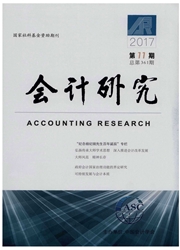

 中文摘要:
中文摘要:
Diamond(2004)指出,在利率受到较多管制的情况下,贷款期限结构成为银行业的重要契约工具。因此,对具体企业的不同期限的贷款规模成为信贷资源配置的重要指标,它既受到宏观制度环境因素的影响,也受到(宏观因素制约下的)微观企业因素的影响。那么2003年的银行业改革,将会改变原有因素对信贷资源配置的作用效果吗?本文以上市公司的新增短期贷款(DLS)和新增长期贷款(DLL)为被影响变量,在宏观层面选取了银行业腐败(谢平和陆磊,2005)因素;在微观层面选取了借款企业的盈余质量因素,考察了它们在改革前后对DLS和DLL影响的差异,主要结论是:(1)改革前,银行业腐败对DLS和DLL都有显著影响,而改革后,银行业腐败对DLS的影响受到了抑制,但对DLL的影响没有显著改善。(2)在控制了腐败的地区性差异后:改革前,盈余质量对DLS影响不稳定,但与DLL负相关;改革后,盈余质量与DLS正相关,但与DLL负相关没有得到显著改善。本文研究发现,受制度环境和银行业腐败因素的影响,债务期限无法发挥其作为风险控制的作用,金融体制改革效果主要表现在短期信贷市场,强制性的制度变迁无法在短期内达到预期效果。
 英文摘要:
英文摘要:
Diamond (2004) suggests that debt maturity is very important for borrowers subjected to high costs of intervention who are thereby forced to use short-term debt. Both debt size and the maturity of specific firms are important for measuring the efficiency of credit resource allocation, which is influenced by both the macroeconomic system and microeconomic factors. This study focuses on the financial system reform promoted at the end of 2003 by the Chinese government to investigate the behavioural changes in parties participating in debt contracts before and after the reform. We use new short- term and long-term loans to study debt contracts, the bank corruption index (Xie and Lu, 2005) to measure the autonomy of an institution, and earnings quality to measure borrowers' credit risk. We find the following. First, before the financial system reform, both the short-term and long-term credit markets are subject to corrupt influence, but after the reform, this influence is alleviated in the short-term market but not improved in the long-term market. And second, once regional differences in corruption are controlled for, the performance of earnings quality before the reform is mixed in the short-term credit market but negative in the long-term market; after the reform, performance in the short- term market becomes significantly positive but is not improved in the long-term market. Owing to the influence of the institutional environment and banking corruption, debtmaturity is limited to playing a role as a form of risk management, while the financial system reform has improved mainly resource allocation efficiency in the short-term credit market. Thus, a mandatory change in the system has not been able to achieve the desired results in the short term.
 同期刊论文项目
同期刊论文项目
 同项目期刊论文
同项目期刊论文
 期刊信息
期刊信息
